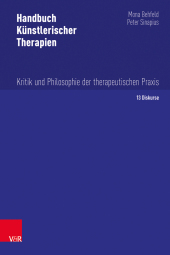 Neuerscheinungen 2015Stand: 2020-02-01 |
Schnellsuche
ISBN/Stichwort/Autor
|
Herderstraße 10
10625 Berlin
Tel.: 030 315 714 16
Fax 030 315 714 14
info@buchspektrum.de |

Beate Bengard
Rezeption und Anerkennung
Die ökumenische Hermeneutik von Paul Ricoeur im Spiegel aktueller Dialogprozesse in Frankreich. Dissertationsschrift
2015. 350 S. 23.2 cm
Verlag/Jahr: VANDENHOECK & RUPRECHT 2015
ISBN: 3-525-56449-X (352556449X)
Neue ISBN: 978-3-525-56449-3 (9783525564493)
Preis und Lieferzeit: Bitte klicken
Paul Ricoeur für die ökumenische Theologie fruchtbar gemacht
Beate Bengard deals with the ecumenical hermeneutics of the French philosopher Paul Ricoeur. His theory is of interest for ecumenical theology particularly in the area of ecumenical reception. The specificity of ecumenical reception is that it requires the acceptation of otherness - of the alterity - of the ecumenical partner. Obviously, this process goes far beyond the ratification of ecumenical documents. In order to clarify the process of reception, a hermeneutical model is needed which explains the interrelation of the interpersonal recognition of otherness, the reception of texts, as well as of changing collective identities. A complex model of the reception process is deduced from the theory of Paul Ricoeur and Ricoeur´s model is compared with three concrete ecumenical processes in France. This shows there is a high degree of accordance between these ecumenical examples and Ricoeur´s hermeneutical process. The conclusion points to ways in which this contributes to building an ecumenical culture inspired by Ricoeur´s philosophy.
Beate Bengard deals with the ecumenical hermeneutics of the French philosopher Paul Ricoeur. His theory is of interest for ecumenical theology particularly in the area of ecumenical reception. The specificity of ecumenical reception is that it requires the acceptation of otherness - of the alterity - of the ecumenical partner. Obviously, this process goes far beyond the ratification of ecumenical documents. In order to clarify the process of reception, a hermeneutical model is needed which explains the interrelation of the interpersonal recognition of otherness, the reception of texts, as well as of changing collective identities. A complex model of the reception process is deduced from the theory of Paul Ricoeur and Ricoeur´s model is compared with three concrete ecumenical processes in France. This shows there is a high degree of accordance between these ecumenical examples and Ricoeur´s hermeneutical process. The conclusion points to ways in which this contributes to building an ecumenical culture inspired by Ricoeur´s philosophy.


